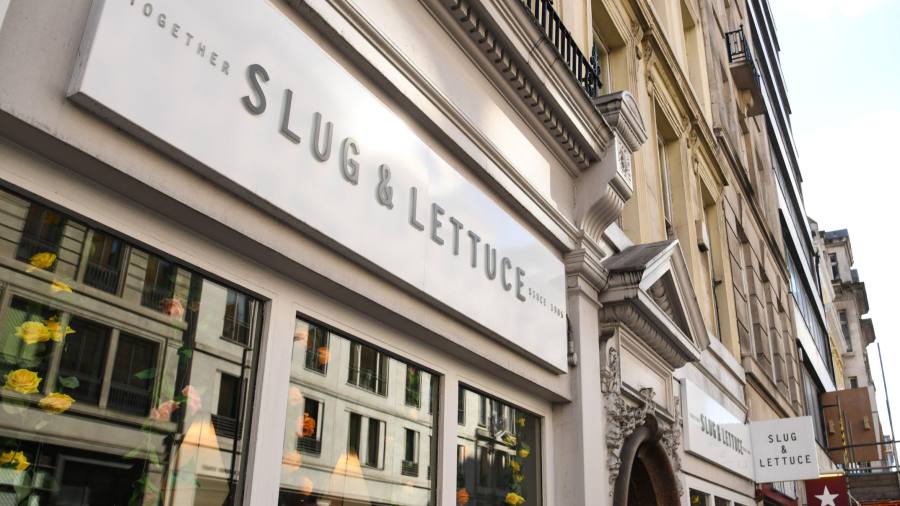
Insurers facing lawsuits relating to business-interruption losses caused by pandemic lockdowns should be able to take into consideration any support provided to businesses by the UK government under its furlough scheme, the High Court has ruled.
A judge on Monday ruled on issues relating to an £845mn claim submitted by Stonegate, owner of the Slug and Lettuce and Walkabout chains, which is suing three insurers over the extent of their coverage for pandemic-linked losses.
The company, which has 760 pubs and restaurants, claimed an insurance policy covering business interruption and related losses had been triggered multiple times during the Covid-19 crisis.
The insurers MS Amlin, Liberty Mutual and Zurich have not disputed that the insurance policies should have paid out, but contended their liability was limited because the interruption was caused by a single occurrence.
In a closely watched ruling, Mr Justice Christopher Butcher found in favour of insurers in key aspects of the case, but ruled in Stonegate’s favour that there had not been a single occurrence as insurers had contended but several occurrences.
Notably in his ruling, the judge said financial support provided to Stonegate through the government’s Coronavirus Job Retention Scheme should be taken into consideration for the purpose of calculating how much businesses could claim under their insurance policy. The UK government’s flagship support scheme was launched in 2020 and offered grants to help companies cover a proportion of the salaries of furloughed staff.
The ruling is significant because other businesses seeking to sue their insurers over pandemic insurance cover could now face reduced payouts if they received government support during the pandemic.
Mr Justice Butcher said: “In the present case, the CJRS payments were ones which, prima facie, did diminish the insured loss. They were payments made in respect of employment costs which Stonegate would otherwise have borne itself . . . In either case, they would have contributed to the financial loss arising from the interruption or interference to Stonegate’s business.”
The judge added that he was not “being asked to determine what losses were actually sustained by Stonegate”, which will “if necessary, have to be the subject of further evidence and argument”.
Stonegate Group said it planned to appeal against the ruling: “The outcome of this case is far from conclusive. We are pleased that the judge found in our favour on a number of key issues and note that he sided with our insurers on others.”
Chief executive of MS Amlin Underwriting Johan Slabbert said: “We welcome the judgment of the High Court, and believe this brings some genuine clarity to a very complex business interruption case. Zurich said it was reviewing the ruling and Liberty Mutual declined to comment.
The judge also handed down two other rulings on claims brought by Greggs and Various Eateries — which owns the Coppa Club restaurant and pub chain — against insurers over business-interruption losses caused by disruption from the Covid-19 pandemic.
In his ruling on Greggs, Mr Justice Butcher reiterated that the furlough scheme should be taken into account when calculating losses under the insurance policy.